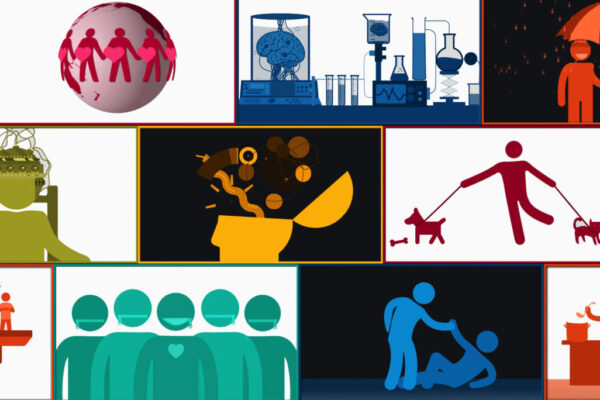A public university like The University of Texas at Austin lies at the intersection of several communities that have put their trust in us. The people of Texas support us through their tax dollars and their love of all things Longhorn. Our students and their families have faith that we will prepare them for a career and a life of learning and service. Granting agencies, foundations and donors invest in our capacity to create new knowledge.
Our job is not to please everyone: In fact, we can’t do that. When two people interact, they are likely to have some differences in their goals. If one person gets what he wants, the other will not — and if they compromise, neither may be satisfied. Multiply that by the number of faculty members, staffers, students, legislators and other Texans, and you have plenty of opportunities for people to be disappointed.
Instead, we have a duty to behave ethically and responsibly. As often as possible, we should strive to do the right thing. But that is more challenging than it sounds. And ultimately, it will require us to talk much more with one another about what real ethical behavior should look like at UT.
Challenges for ethical behavior
In order to behave ethically, we have to start by defining some kind of moral code that we believe we should live by. This provides a set of guideposts to help us make decisions about our behavior. Then, we need to try to act accordingly.
That seems simple enough. You might not realize it, but the university has a set of core values.
The core values of The University of Texas at Austin are learning, discovery, freedom, leadership, individual opportunity, and responsibility. Each member of the university is expected to uphold these values through integrity, honesty, trust, fairness, and respect toward peers and community.
Unfortunately, just as you are guaranteed to get conflicts of interest once you have more than one person, you are guaranteed to get conflicts of values once you have more than one value. Freedom and responsibility often conflict: If I have responsibilities to other people, then I am giving up a certain amount of my freedom. A core element of leadership is delegating tasks to others, which can restrict their freedom and (potentially) their individual opportunity in order to take on a task for the greater good of the organization.
And, of course, the members of The University of Texas community are not obligated to accept this set of core values. We may take exception to some or believe that others are missing.
Even when we do agree on a set of communal values, it is hard to live up to them. Values in organizations such as universities often focus on desirable long-term outcomes. Learning and discovery can conflict with the desire to get good grades right now. Taking on a leadership role at the university might require tasks that get in the way of individual productivity.
Generally speaking, goals that can be achieved more quickly exert a stronger pull on people’s behavior than goals that can be achieved only in the long-term. That means that even if you want to live up to a set of values, there are likely to be many tempting short-term benefits that get in the way of doing the right thing in the long run.
Now we know the problem we face. We need to agree on a set of values. We must have some procedure for deciding what to do when our values conflict. And even after we agree on all of that, we need to find ways to help one another live up to that set of standards.
The value of conversation
How often do you talk about your values with other people? As a member of The University of Texas community, have you ever had a conversation about what is valued here and how that relates to your role?
We often talk about work tasks and responsibilities. Every member of the staff and faculty of the university is evaluated each year based on criteria related to his or her job. Students are evaluated based on their performance in classes and progress toward their degrees. But, these evaluations rarely include a discussion about how this performance relates to key values.
We need to start talking about values more often.
These conversations have three key benefits. First, they increase our sense that we belong to a well-functioning neighborhood. There are invariably times when people do things at work that cause problems. In those moments — particularly if their actions leave you with more work — you can come to question their commitment to the community. The more certain you are that you share values with your colleagues, the easier it is to treat disagreements, lapses in judgment and poor performance as narrow problems that can be fixed rather than as signals of a deeper lack of commitment to the institution.
Second, these conversations give all of us the chance to see the broader influence of our work. Research in the area of positive psychology makes clear that people who see their work as a calling are happier than those who are focused just on the tasks they perform or the money they make.
Viewing your work as a calling requires seeing it as contributing to some broader interpersonal or societal goal of importance. UT does so many things that benefit the world; it is not hard to find examples of how we make other people’s lives better. Nonetheless, there can be days when that broader benefit is hidden among daily frustrations. Knowing that you are part of a community that shares values reinforces that sense of purpose.
Third, the willingness to talk about values is particularly helpful when there are points of disagreement. Tensions can run hot when people disagree about things that are important to them. It is hard to have productive conversations about values when the initial conversations emerge out of disagreements. Values arguments can magnify the degree to which people see themselves as different from others.
By starting those conversations when things are calm, disagreements can be resolved starting with some common ground. The knowledge of which values you share with others can ease tensions, and you might be able to find solutions to problems that allow all parties to feel good about the overall outcome. At a minimum, when things don’t go as you hope, you will be able to recognize and respect how a decision fits the values of another party.
An ethical environment
Living up to the values of the group also requires engaging in daily behaviors whose accumulated impact leads to long-term outcomes that match those values. Unfortunately, it is hard to keep focused on your values at every moment of every day. Instead, you generally focus on the task in front of you. Do that. Then move on to the next one.
So, how do you ensure that the actions you take respect our shared values as often as possible?
One of the most important things we can do is to manage our environment to remind us of the values we hold that promote desirable behaviors.
The University of Texas reinforces its identity wherever you look around campus. There are burnt-orange signs, images of Bevo and university logos all over. Students, faculty members and staff members walk around campus wearing UT apparel.
But, there are not many overt signs that create reminders of our values. If you happen to walk by the Main Building, you can see mottos etched into the stone. But, most buildings and offices have few reminders of the importance of our core institutional values. Even subtle reminders can help to keep these concepts active. Consider putting up a sign that highlights a value (like discovery) or one of the modes for living up to that value (like integrity) that will remind the people around you of what we value.
You can reinforce the importance of shared values by starting meetings with an ethics moment. In the construction industry, meetings typically start with a safety moment in which participants discuss a way of keeping people injury-free to remind everyone of how quickly something can go wrong on a job site. Similarly, by starting a meeting with a brief discussion of potential ethical lapses and ways to improve compliance with our values, we can provide specific strategies to help everyone be mindful of how our behavior affects the values of the university overall.
In addition, seek ways to structure your work environment to make desirable behaviors easy and undesirable behaviors hard. Are there temptations lurking in your environment? That is, are there behaviors that would be easy to carry out but would conflict with a core value? Then try to restructure the physical layout to make that behavior harder to perform. While you’re at it, see whether there are ways to make desirable behaviors easier to perform.
Ultimately, the reputation of The University of Texas rests on all of our shoulders. In order to be a positive force for change, we must act to deserve the trust that so many people have placed in us. So, let’s talk more about our values.



